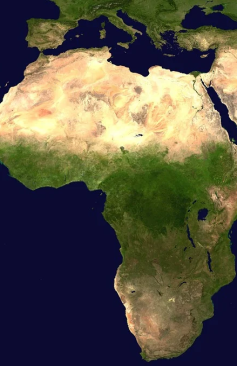Sanitizing the International Criminal Court: Africa
By Michael Kabai
Published on January 28, 2014

Introduction
In 1998, world states created the International Criminal Court (ICC) to effectively address the most serious international crimes.
The ICC was created by the Rome Statute, which entered into force on July 1, 2002.
States have limited its jurisdiction to the most serious crimes of concern to the international community.
The jurisdiction of the ICC could be triggered in three ways: a state party may refer to a situation within the ICC’s jurisdiction (e.g. Uganda, Democratic Republic of Congo, Central African Republic); the Security Council may refer a situation to the ICC (e.g. Sudan, Libya); or the Prosecutor may be in a situation on his own initiatives, but only after he receives the approval of a pre-trial chamber consisting of three judges (e.g. Côte d’Ivoire).
Its establishment has undoubtedly raised hope that crimes of the utmost brutality – war crimes, crimes against humanity, and genocide – will no longer go unpunished. For that reason, the African states welcomed the setting up of the ICC as a significant step forward in the endeavor to promote greater respect for the law.
African states were confident that the ICC will have a deterrent effect and thus limit the cycle of violence. With many African states already party to the Rome Statute, they hoped that more states will join especially the three permanent Security Council members (China, Russia, and the United States), thus contributing to making the ICC truly universal and enhancing its credibility and effectiveness.
The Relationship between the ICC and the Africa States
There is certainly no doubt that the relationship between African states and the ICC is very important to the ICC. It could also be argued that without the African states, the ICC would not exist as it is today. African states played an essential role in negotiating the Rome Statute. One can only assume that the reason for this may be because more than any other states, African states understood the impact of the commission of massive crimes on their own territories. It is therefore not surprising that Africa is the most represented continent among the states parties to the ICC. The close ties between the ICC and the African states are also evident in the ICC’s current activities.
The first three referrals came from African governments relating to situations on their own territories. Due to this tight relationship between the ICC and the African states, cooperation with the African Union (AU) is particularly important to the ICC. Cooperation is also important because of the critical role the AU plays on the continent.
What went wrong in the relationship between the ICC and the African States?
African states were the first to invite the ICC to their territories to assist them in dealing with their own domestic situations. For example, the Security Council authorized the ICC to investigate Sudan (not a State Party to the ICC), whose president Omar al-Bashir was indicted for his alleged role in committing ethnic killings in Darfur. The Libya referral by the Security Council, the second time that the Security Council exercised this power, created an uneasy situation between the African Union and the ICC. It became crystal clear that in the decision whether or not to refer a situation to the ICC, as is the case with deferrals, only political consideration, rather than humanitarian considerations prevail, which in turn politicizes the role of the ICC as an impartial judicial body. The fact that the ICC often deals with situations of internal conflict and political competition, has raised concerns about its impartiality.
Uganda, which invited ICC participation, later found that as a result, it could not offer amnesty to insurgents in order to establish peace. As the ICC increasingly interfered in their affairs, some African states took the view that the ICC, in the words of Ugandan President Yoweri Museveni, is now being used by Western powers “to install leaders of their choice in Africa and eliminate the ones they do not like.”
Many international criminal tribunals that preceded the ICC were accused of being merely institutions for the victor’s justice. This is true despite the fact that the founders of the ICC were cognizant and wished to create an independent judicial institution free of politics.
Today, the ICC is plagued by the stigma of victor’s justice, due in part to its case selection. The Office of the Prosecutor failed to give the impression that it will ensure that atrocities committed by whatsoever side in a conflict are investigated and prosecuted.
Unfortunately, the Libya case was not the only case where the ICC has indicted only one ‘party’ to a conflict. Interestingly, when the Ugandan government referred the situation to the ICC, allowing the prosecutor to investigate crimes committed, the ICC only issued arrest warrants for the Lord’s Resistance Army commanders and not for the Uganda People’s Defence Force or government leaders, even though there were serious accusations that these parties had committed atrocities.
In Côte d’Ivoire, the Office of the Prosecutor used his proprio motu power to investigate crimes perpetrated in the aftermath of the elections in 2010.
President Alassane Ouattara expressed full cooperation with the ICC and asked for assistance in prosecuting perpetrators of crimes that fell within its jurisdiction. At present, former president Laurent Gbagbo is the only indictee notwithstanding reports of President Ouattara supporters committing crimes that fall within the ICC jurisdiction. Despite its efforts to show impartiality, such examples fuel criticism that the ICC serves victor’s justice.
In July 2002, the Security Council agreed on resolution 1422 which would exempt peacekeepers from prosecution. It is an open secret that many of the United Nations peacekeepers come from the five permanent members of the Security Council. Amnesty International described it as “unlawful” because the resolution effectively undermines the ICC.
Twisting the knife in the wound, the ICC announced that it would not proceed with an investigation into allegations of war crimes in Iraq. The ICC strongly argued that it only has jurisdiction over individuals from countries that have joined the ICC or have committed crimes on the territory of countries that have joined the ICC. Basically, the ICC was saying that it does not have jurisdiction over any alleged crimes committed by U.S. or Iraqi troops in Iraq, since neither of these countries has joined the ICC.
The ICC Prosecutor only addressed alleged crimes committed by individuals from nations that have ratified the ICC treaty. Even worse, the private contractors or mercenaries hired by the U.S. who committed atrocities in Iraq were deliberately ignored even though some of them came from countries that are state parties to the ICC.
Conclusions
Henry Kissinger made a good point that “it is an important principle that those who commit war crimes or systematically violate human rights should be held accountable. But the consolidation of law, domestic peace, and a representative government in a nation struggling to come into terms with a brutal past have a claim as well”. African Union Member states have never ever claimed that those who commit war crimes or systematically violate human rights on the continent should do so with impunity.
African states like other states outside the continent want justice not only to be done but also want it to be done in such a way that it does not destabilize and compromise peace which is the ultimate goal.
Advocates of the ICC conveniently blind themselves from these realities facing the ICC. They blindly shoot down every argument that questions the ICC’s credibility. They suitably ignore the fact that the ICC has become a potent weapon in political rivalry even when there is overwhelming evidence of that fact.
The ICC does indeed unfairly target African states and conveniently ignores other states who commit similar or worse crimes against humanity. The ICC has unfortunately succumbed to selective justice. Selective justice has undeniably eroded its credibility on the African continent.
The ICC must earn the trust of the African Union member states and most importantly of the international community. As was argued by Henry Kissinger, sometimes difficult decisions irrespective of who committed the crimes must be taken.
In South Africa, not everyone was happy about the Truth and Reconciliation Commission. It was not perfect but it brought peace and stability. Otherwise, if the government took a hard-line stance and decided to prosecute De Klerk and his cronies for the crimes that they have committed during the Apartheid era, then South Africa would have been engulfed in a civil war.
At the end of the day, African states not only want justice to be done but also want it to be manifestly and without a shadow of a doubt be seen to be done not just in Africa but also elsewhere in the world.
The Author

Michael Kabai, LLB (UNIN), LLM (UNISA).
The author is State Law Adviser (International Law) in the Office of the Chief State Law Adviser (International Law) in the Department of International Relations and Cooperation of the Republic of South Africa.
The views expressed herein do not necessarily reflect the views of the South African Department of International Relations and Cooperation or the South African Government.
Article picture: WikiImages via Pixabay stephencphotog via Pixabay


